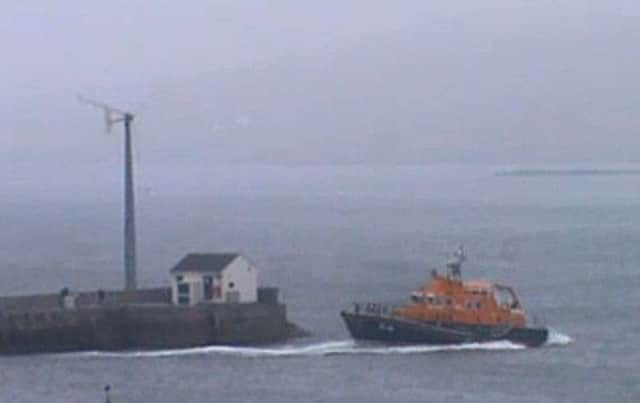Shetland helicopter crash: Super Pumas grounded


All seventeen Mark 2 Super Puma helicopters operated worldwide by CHC Helicopters have been grounded after four people died in a ditching off Shetland.
The grounded aircraft include the nine AS332L2 aircraft operated on North Sea crew change flights from Aberdeen heliport. Mark Abbey, Regional Director, Western North Sea for CHC admitted the the helicopter company faced an uphill battle in regaining the confidence of the North Sea workforce following the latest tragedy involving Super Pumas in the North Sea.
Advertisement
Hide AdAdvertisement
Hide AdHe vowed: “We will work hard with the regulatory bodies, Eurocopter and with the AAIB to ensure that we give the confidence to the oil and gas workers and to the industry itself - to restore any confidence that we will have lost or damaged during that incident.
“I would acknowledge that there will be concerns - no doubt about that - and we will have to work hard to restore some of that confidence.”
“We have started looking at the maintenance records and right now there is nothing noteworthy to actually bring forward.
“Obviously that will be done in much more detail as we work hand in hand and cooperatively with the AAIB and Eurocopter themselves.”
Mr Abbey opened his press conference by offering condolences to the families of Duncan Munro, Sarah Darnley, Gary McCrossan and George Allison who died in the crash.
He added: “I would like to extend my personal thanks and the thanks of everyone at CHC to all the emergency services and organisations involved in the rescue and recovery last night and in the subsequent medical attention, care and support on the ground in Lerwick.”
Tavish Scott, the Liberal Democrat MSP for Shetland, said: “The families of those lost must know why this helicopter ditched very suddenly in the sea. There have been repeated serious and tragically fatal crashes involving Super Puma helicopters. The operators are right to ground the entire fleet. But there are now serious questions about why the Super Puma had been cleared to fly given its tragic record in recent years. The Sumburgh ditching is the same model of Super Puma that crashed off Peterhead with the loss of 16 lives.
“People across Shetland are thinking today of those lost and the incalculable impact on their families.”
Advertisement
Hide AdAdvertisement
Hide AdMr Scott, who has undertaken offshore safety helicopter training in Aberdeen, added:”The oil industry must ask itself detailed questions about moving people to oil and gas rigs in the North Sea and West of Shetland. The shortest helicopter journey must surely be the best option with people being flown to the nearest airport by fixed wing aircraft. Men and women who work offshore must have confidence in the aircraft types they are being asked to fly in. I can’t see how that can include the Super Puma.”
Malcolm Webb, the chief executive of Oil & Gas UK, the pan-industry trade organisation, said the North Sea industry was “deeply concerned” by the latest tragedy, and pledged that any lessons learned from the disaster would be shared across the industry.
He said: “We are thinking first and foremost of the passengers and crew involved in this incident and of their families and friends.”
“All offshore helicopter pilots undergo extensive training to prepare them for emergency situations and all passengers undergo regular helicopter evacuation training. This incident serves to emphasise the critical importance of such preparation.
“Helicopter safety remains a focus for the oil and gas industry, with the Helicopter Safety Steering Group (HSSG) now an established part of the Step Change in Safety organisation. Oil & Gas UK awaits more information on this incident and, through the HSSG, will ensure any learning from this is shared across the industry.”
The flag above the Town House in Aberdeen - Europe’s oil capital - was being flown at half mast today as a mark of respect for those who perished in the disaster.
The city’s Lord Provost George Adam said: “Everyone in this city knows someone who works offshore and so this tragedy hits home with us all. It is easy to take for granted the fuel that powers our everyday lives, but we cannot forget the enormous gratitude we owe to these friends, relatives and colleagues who work in such a challenging environment. We have a close knit community here, and I know that the heartfelt sympathies of the whole city go out to everyone affected.”